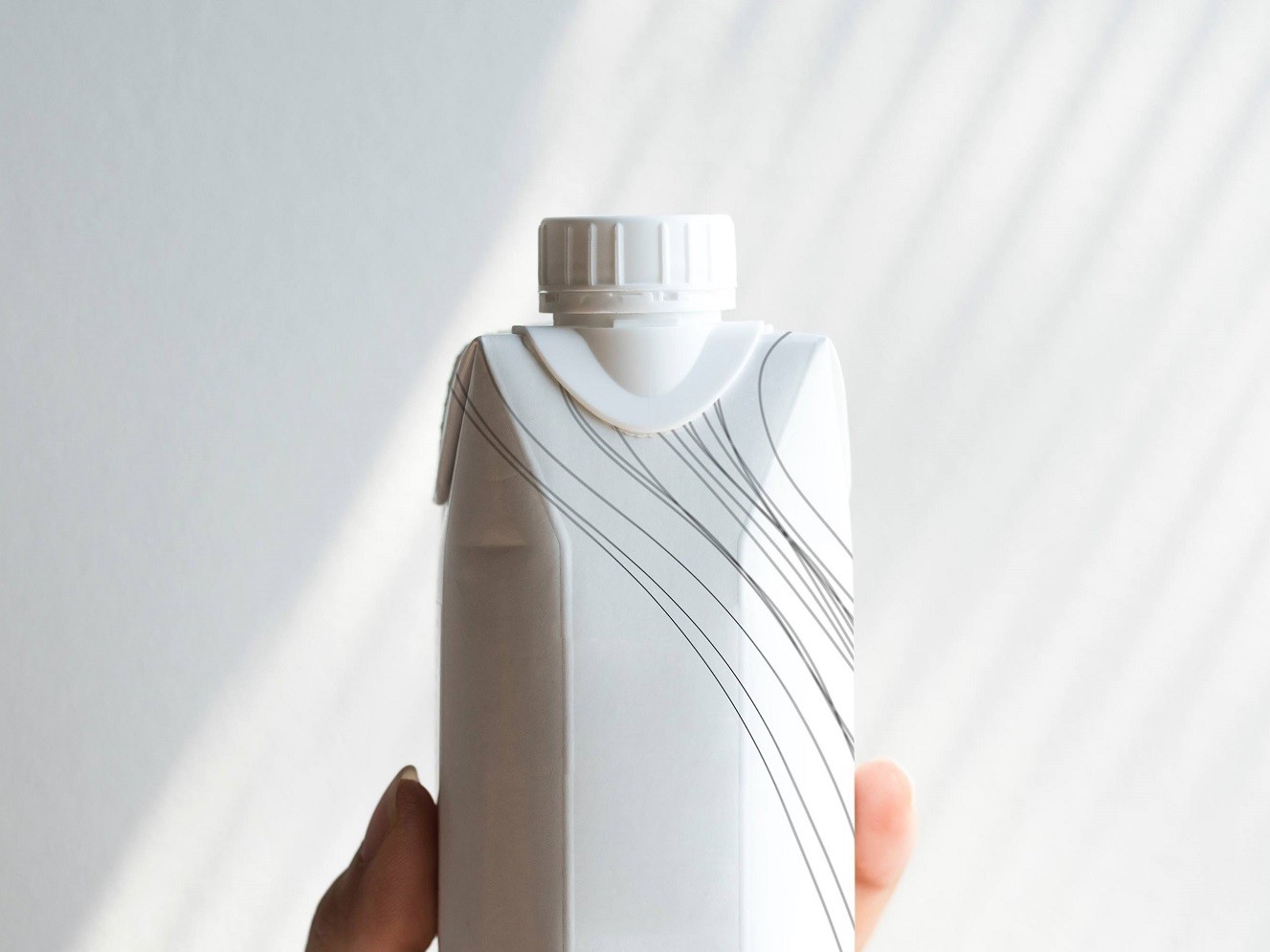Bio-based beverage cartons
Packaging in cartons became so popular with beverage suppliers because of lower (transport) costs, and with consumers for their convenience: cartons are lighter and safer to use than glass. Whether single-use beverage cartons are also more environmentally friendly than re-suable glass bottles is highly debated. Beverage cartons are usually made of a combination of packaging board coated with a plastic layer of polyethylene (PE). The board gives maximum strength for a minimum of weight and the coating makes the carton waterproof. A growing number of packages have re-sealable closures (caps) that are also made of PE. Since these caps are in use, the average weight of a 1 litre carton has grown by about one-quarter. Beverage cartons for long-life liquid products, also called ‘aseptic products’, like (sterilised) dairy products, soy milk, juices, fruit-based lemonades and non-carbonated waters, additionally have a foil laminate, a thin aluminium layer that protect beverages from light and oxygen. The aluminium layer is just 6.5 micrometres thick, less than a quarter of a hair. Aluminium is an excellent barrier for oxygen and light and thanks to this these drinks can last for up to 18 months without preservatives or refrigeration. According to Deutsche Umwelthilfe (DHU), in 2014 the average weight of a 1 litre beverage carton was 35 gram, of which 70% is paperboard, 26% is PE and 4% is aluminium. It would be a mistake to think that common cartons are almost entirely made of renewable feedstock. Twenty plants from just three companies (Tetra Pak, Elopak and SIG Combibloc) produce >90% of the beverage cartons used in Europe. About all paperboard used is sourced from Sweden and Finland, where trees with wood fibres of sufficient length (such as spruce, pine birch and eucalyptus) can be found. Consumers are increasingly demanding environmentally-friendly products and packaging that is sustainable. Sales of consumer goods from brands with a demonstrated commitment to sustainability are growing much stronger than those without. To address this demand, all three companies (Tetra Pak, Elopak and SIG Combibloc) have developed cartons that are 100% bio-based, just like the milk carton a century ago. The plastic polyethylene it is usually derived from fossil resources. A steadily increasing volume of PE is made from biomass (residues like e.g. sugarcane from Brazil or tall oil from Nordic forests). The renewable PE is finding increasing application in beverage cartons, initially for the PE cap and later also for the PE coating. Examples include the Tetra Rex® and the Pure-Pak bio-based milk cartons. SIG’s aseptic Signature Pack contains a special polyamide (PA) polymer barrier as a replacement for aluminium. Three years after its introduction in 2015 Elopak hit the one billion mark for its 100% renewable carton. Nonetheless the 100% bio-based containers have a (very) modest market share to date. To reduce the environmental impact, single use packaging should ideally be recycled. For beverage cartons it has always been a big problem that, although technically recyclable, there weren’t many places that could actually recycle them. Because they consist of multiple layers, it is difficult to separate and recycle the different materials. That situation has gradually improved with an increasing number of specialised recycling plants (some 25 across Europe) and a steadily growing recycling rate. Read the full article: http://www.allthings.bio/bio-based-beverage-cartons/(opens in new window)



